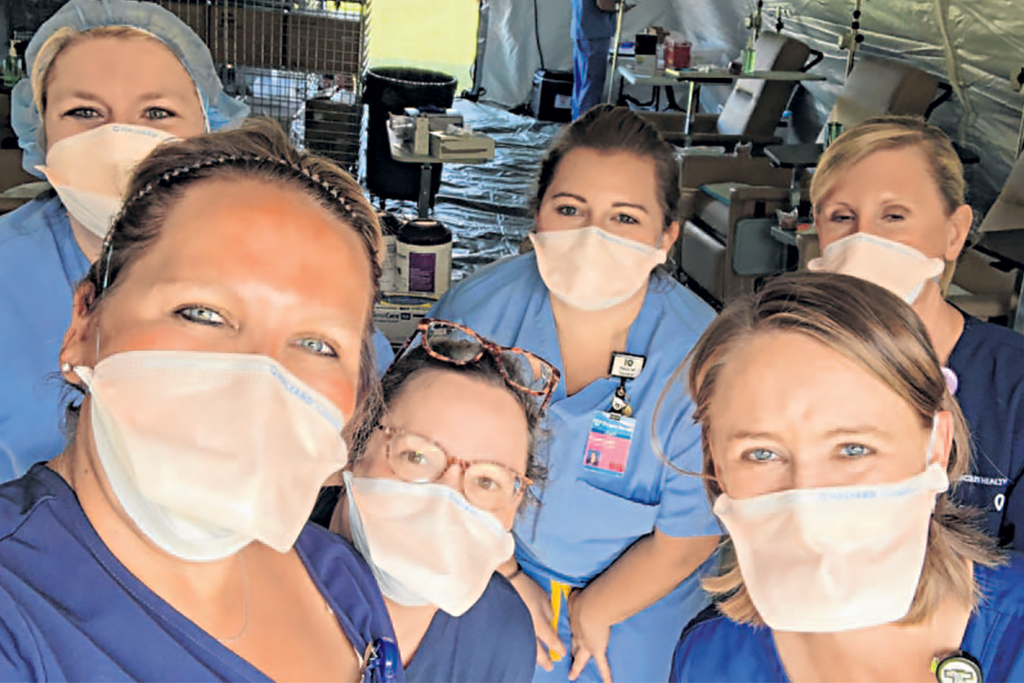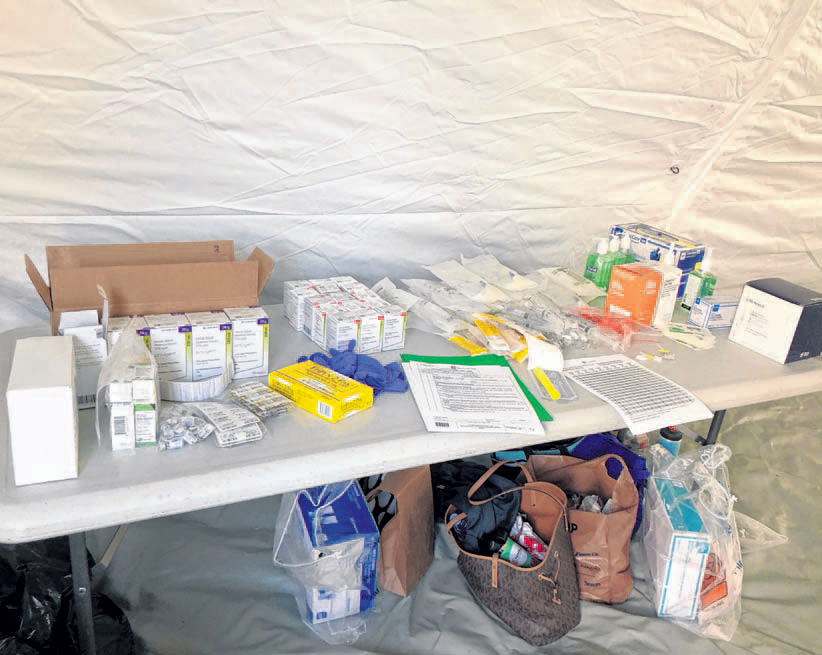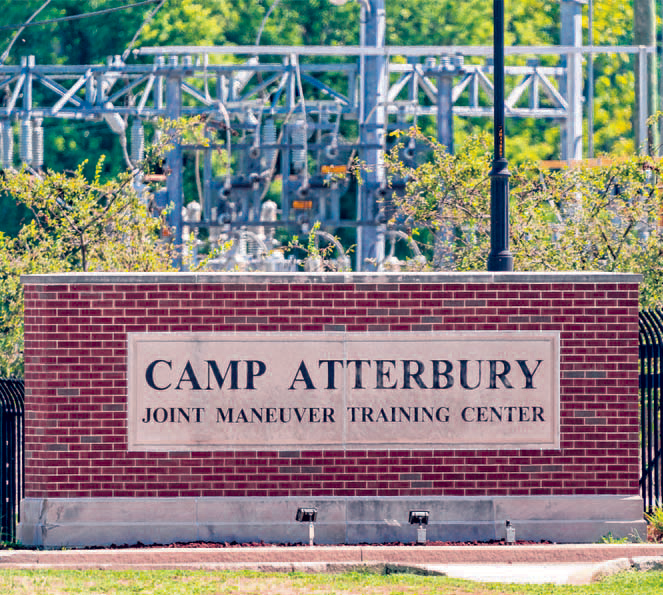
In early September, refugees from Afghanistan arrived at Camp Atterbury in Johnson County. The Department of Defense approved the Johnson County site as one of eight across the country, according to the Indiana National Guard, to provide support for Afghan people fleeing the country after the Taliban’s takeover.
The Department of Defense brought a team of roughly 800 military, police, and medical personnel to Camp Atterbury when the first wave of refugees arrived in Indiana. As some medical cases couldn’t be treated on base, officials at Franciscan Health provided a handful of refugees with medical care and vaccinations.
Angela Bratina, administrative director at the Franciscan Health Center for Women & Children, helped lead the vaccination process for refugees at Camp Atterbury. Bratina’s team was asked to help assess Afghan women, specifically, to help determine which vaccines were needed and which might be contraindicated for the pregnant population.
“The CDC, US Military, and Indiana State Department of Health were doing a great job with implementing a process for vaccination,” Bratina said. “A lot was still unknown about their vaccination status due to the process being new and they had only been at the camp for a week or less.”
Bratina said one of the biggest barriers with treating patients was the language and communication differences. She explained that it was difficult finding translators within the camp, and it appeared that they were sharing translators between several different clinics and sites.
“Finding an English-speaking translator to make sure they understood why we were there and what we were asking was almost impossible,” Bratina said. “There was also so much unknown for the troops, the guests, and us as healthcare providers.”
For Bratina’s team at Franciscan Health, it was a privilege to provide care to these mothers. She says they were scared, confused, and unable to communicate; yet they were calm, gentle, and kind.

“I cannot imagine being pregnant, and in many cases feeling poorly due to the travel, heat, and being in another country,” Bratina said. “They were grateful for our help, but we were the ones who were privileged to provide it. The mission of our organization is to serve those in our community, and although they were new to our community, they are now part of it.”
Bratina said if asked again, she would volunteer to provide care and support in a heartbeat. “For how terrified the families must have felt, they were very grateful for the care provided,” she said.
Johnson Memorial and Columbus Regional also helped treat Afghan refugees.
Dr. Dave Dunkle with Johnson Memorial Health says he appreciates the hospital’s relationship with Camp Atterbury and is honored to have helped treat patients even while dealing with an unfortunate cyber-attack that hit the hospital.
“Lines of communication with Camp Atterbury have always been open and we’ve enjoyed caring for those stationed there over the years,” Dunkle said. “We are especially excited to now be able to help in this amazing humanitarian effort and provide health care to the evacuees who have arrived from Afghanistan.”
“Things were pretty grim the weekend Johnson Memorial Health was hit with a cyberattack,” Dunkle continued. “However, that same weekend, our OB department helped an Afghan couple deliver a beautiful baby girl. The birth was extremely smooth, and the parents were beaming. Truly a bright spot in a weekend that was otherwise very frustrating.”

Columbus Regional Health Public Relations Coordinator Kelsey DeClue says it was truly inspiring to see local hospitals come together for one cause.
“Columbus Regional Health is pleased to join other area health care organizations in providing medical services and support to the Afghan refugees housed at Camp Atterbury,” DeClue said. “Whether an emergent or urgent visit to one of our facilities, or health/wellness consult with the medical staff on base, Columbus Regional Health has been able to provide a variety of services when needed. We appreciate the open and effective communication and partnership with Camp Atterbury officials and wish the refugees continued health and wellness in their journeys.”
Camp Atterbury now houses more than 6,500 Afghan evacuees. After much-needed medical treatment, several organizations are working to help find permanent homes for them and officials anticipate many will relocate out of the Indianapolis area.

